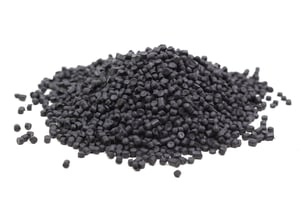 Temperature tolerances can be a major concern in any custom wire basket design. This is especially true for baskets that use a coating such as Plastisol, PVC, or black plastic. High temperatures can melt coatings or weaken them enough to make them more susceptible to damage. So, many manufacturers ask for confirmation about whether or not a specific material can withstand certain temperatures before using them for their wire baskets.
Temperature tolerances can be a major concern in any custom wire basket design. This is especially true for baskets that use a coating such as Plastisol, PVC, or black plastic. High temperatures can melt coatings or weaken them enough to make them more susceptible to damage. So, many manufacturers ask for confirmation about whether or not a specific material can withstand certain temperatures before using them for their wire baskets.
Can Black Plastic-Coated Wire Baskets Handle 180°F?
For polymers such as PVC and Plastisol, 180 degrees Fahrenheit is the uppermost limit for continuous use temperature. At this temperature, these coatings will remain mostly intact—if there aren’t other mechanical stress factors involved.
For example, in a basket holding sharp objects, such as knife blades, the sharp edges of the knives could dig into the coating. At normal temperatures, the coating would be hard enough to repel the blades. However, as temperatures rise, the coatings will begin to soften slightly. A softened coating is easier to cut, so the blades would then be able to pierce it.
So, when verifying if a coating can withstand a certain temperature, it’s also important to consider other factors, such as the type of load the basket is carrying and the total weight of held parts. These other factors can make a difference for whether or not the coating will hold up.
In fact, this is why Marlin’s engineers use Finite Element Analysis (FEA) on every basket design even if all of the individual stress factors are well within a material’s know tolerances. By analyzing the effects of several stress factors at once, Marlin’s engineers can easily find problems that wouldn’t be obvious on paper.
What About Temperatures Above 180°F?
Some black plastic coatings can take temperatures above 180°F for limited periods of time. Generally speaking, PVC and plastisol should be able to take temperatures up to 190°F for up to 5 minutes at a time. However, it should be noted that this does depend on how the coated wire basket is being used.
If the basket is only holding lightweight parts that don’t put too much pressure on one point, then the coating may be fine. However, if there are other stress factors, then the coating could fail, even though it is not at its melting temperature.
When Should I Use Black Plastic Coating for a Custom Wire Basket?
Plastic coatings for steel baskets might make sense if you have a manufacturing process where temperature isn’t a major concern, but basket corrosion is. Plastic polymers have a strong resistance to many corrosives, helping them extend the useful life of the baskets they protect.
Using plastic coatings allows manufacturers to reinforce some of the best aspects of plastic baskets with the strength and reliability of steel—giving manufacturers the best of both worlds.
For example, some plastic coatings can help prevent scuffing and scratching of parts during the wash cycle—making them ideal for manufacturers who need to clean ultra-delicate parts with no-scratch surface requirements. Meanwhile, the tensile strength of steel keeps the basket from breaking under a heavy load.
One of the best parts about using a coating to protect a custom wire basket is that it extends the useful life of the basket—minimizing your total cost of ownership over time. When the coating wears out, it can often be stripped and replaced for far less than the cost of manufacturing a whole new steel basket.
However, plastic coatings aren’t always the best choice. There are some situations where electropolishing or even using a “plain” finish on a stainless steel wire basket would produce better results for long-term durability.
One example would be when baskets are going to be used in oven-like conditions exceeding 500°F. Most polymers cannot take such temperatures for long without failing, but there are alloys of stainless steel that easily resist oxidation at these temperatures.
Is a black plastic coating right for your next custom wire basket? Find out by talking to an experienced mechanical engineer!



.gif)


